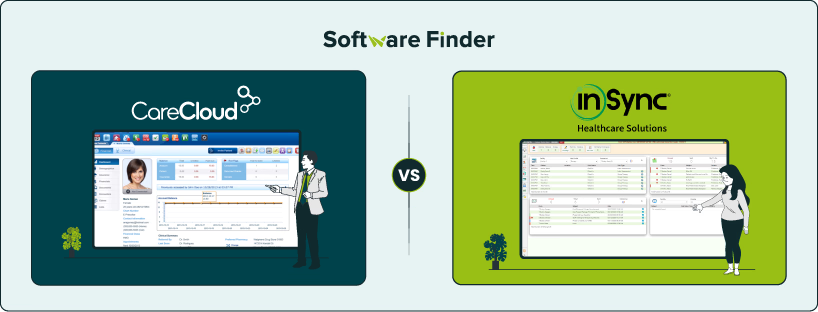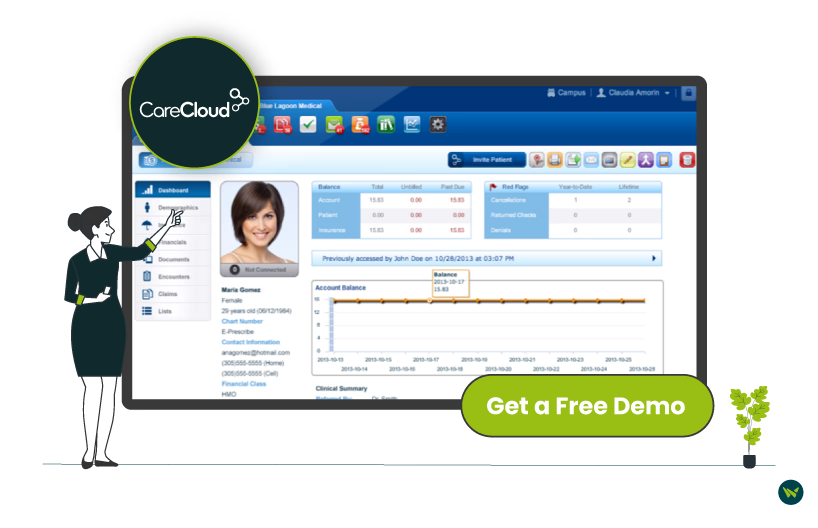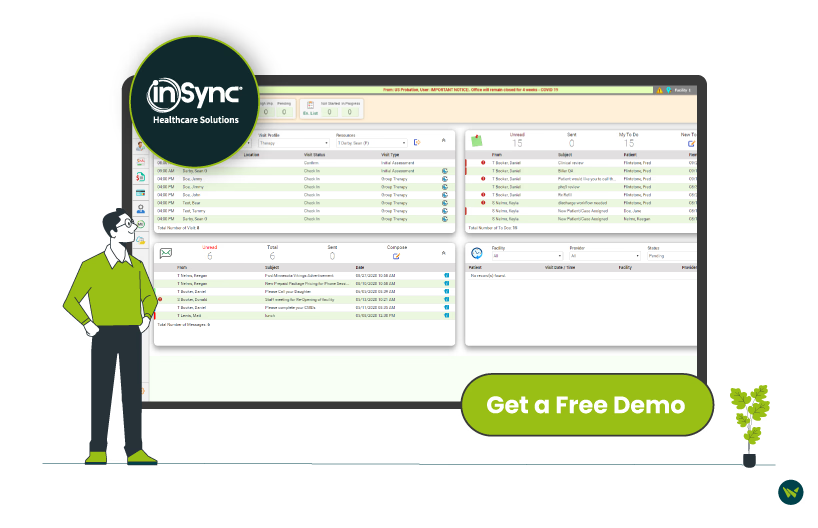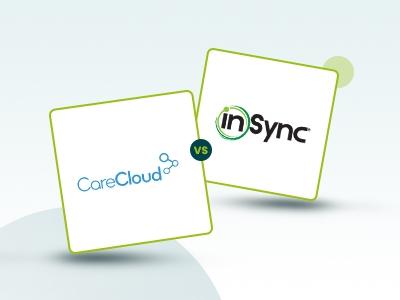
Starting Price: $349 Best for: Internal Medicine, Family Practice Mobile App: iOS, Android Rating: 3.6 ★★★★★ *The pricing has been sourced from third-party websites and is subject to change | Starting Price: $75* Best for: Behavioral Health Mobile App: Not Available Rating: 4.4 ★★★★★ *The pricing has been sourced from third-party websites and is subject to change |

CareCloud and InSync (by Qualifacts) represent two prominent solutions catering to a wide range of medical practices: from solo clinics to large healthcare organizations. While CareCloud is known for its cloud-native infrastructure and integrated revenue-cycle tools, InSync distinguishes itself with specialty-specific templates and behavioral-health capabilities.
With the global EHR market valued at USD 33.45 billion in 2024, the importance of choosing the right system is clear. This guide will examine key features, pricing, strengths, and limitations to help providers decide which platform best fits their practice needs.
CareCloud EHR is a cloud-enabled software offering integrated EHR for behavioral health practices, alongside 70 other specialties. Used by 40,000+ providers, it features customizable charting, AI-powered documentation, real-time analytics, and MACRA/MIPS support. Its revenue cycle management (RCM) services cover claims, billing, and denial management. The platform’s patient engagement tools include digital check-ins, secure messaging, and online bill payment.

InSync EHR is a cloud-based practice management platform designed for behavioral health, substance use treatment, and therapy practices. It combines charting, billing, scheduling, telehealth, e-prescribing, and outcome tracking in a configurable system built on Amazon Web Services (AWS). The platform supports role-specific customization, mobile access, AI-powered documentation, and integrated telehealth directly from the scheduler.
Features | CareCloud | InSync |
Interoperability | ✓ | ✓ |
Appointment Scheduling | ✓ | ✓ |
RCM Capabilities | ✓ | ✓ |
AI-Powered Documentation | ✓ | ✓ |
Telehealth | ✓ | ✓ |
HIPAA Compliance | ✓ | ✓ |
Patient Engagement Tools | ✓ | ✓ |
Voice Recognition | ✓ | ✗ |
Customizable Templates | ✓ | ✗ |
SOAP Notes | ✓ | ✓ |
CareCloud | InSync |
Pros: Customizable provider order display Easy to use with color-coding Efficient reporting and tracking Cons: Limited note templates Saved encounters cannot be deleted | Pros: Customizable dashboard Easy Excel export simplifies reporting Client portal offers extensive features Cons: No bulk chart download option No custom report creation option |


CareCloud offers three pricing tiers. 'CareCloud Central' is priced at $349/provider/month. It offers features like patient scheduling, appointment reminders, and patient profiles. 'CareCloud Complete' starts at $629/provider/month. The package offers a more comprehensive solution with the same core features. Lastly, ‘CareCloud Concierge' charges 3–7% of practice collections and delivers a full-service revenue cycle management solution.
Disclaimer: The pricing has been sourced from third-party websites and is subject to change.
In contrast, InSync is priced at approximately $75/month/user and delivers a focused set of features for behavioral health and therapy practices. This includes integrated scheduling, documentation, telehealth, and compliance support.
While both platforms offer different strengths, their pricing aligns with the types of practices and specialties they are built to serve.
Disclaimer: The pricing has been sourced from third-party websites and is subject to change.
CareCloud is renowned for its customizable default view, enabling providers to set their homepage to the productivity, schedule, or clinical dashboard. This allows them to access their daily schedule within seconds. However, some users have expressed that the platform lacks the option to display the practice details for patient follow-up. Regardless, the platform continues to support better continuity of care through comprehensive scheduling tools and flexible patient record options.
Insync is praised for its reporting capabilities. Reports retrieve data with minimal to no missing information, which supports reliable analysis and decision-making. However, some users have reported a lack of copy-paste functionality in patient charts. Regardless, the software is leveraged for its treatment plan tracking, enabling providers to monitor progress and make data-informed clinical decisions.
CareCloud and InSync both bring strong capabilities to the table, but their value lies in how well they align with your practice needs.
CareCloud stands out for its seamless RCM tools, real-time interoperability, and advanced AI-powered documentation. On the other hand, InSync caters to behavioral health practices with its group telehealth functionality, treatment plan tracking, and configurable workflows.
Ultimately, the best choice depends on your clinical focus, team size, and long-term operational goals.
